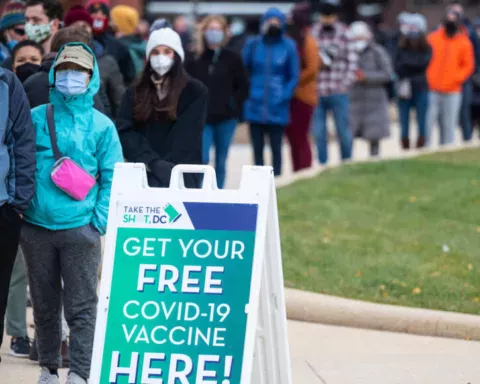Governments and donors including the World Bank are taking actions to achieve these but face formidable challenges.
Even in ordinary times, managing governance risks is challenging. During the COVID-19 pandemic the challenges have become extraordinarily difficult due to the speed and scale of COVID-19 response programs, work overload on implementing and accountability institutions, including media and civil society, and workforce safety concerns and lockdowns.
The vaccination programs entail governance risks such as lack of compliance with allocation criteria, lack of timely information on vaccine shipment and availability, inadequate communications on safety and misinformation; inadequate adverse reaction monitoring and response, substandard quality of vaccine related materials, contract awards to politically favored contractors, unauthorized fees demanded for vaccine administration, jumping the que involving bribes, nepotism and politics.
Civil society organizations (CSO) can help address the challenges. Evidence gathered from research and evaluation studies as well as experiences from 20 years of PTF supported CSO initiatives for good governance shows that CSO engagement, when supported by the government, can improve implementation, inclusion, transparency, accountability, control of corruption and public trust in development programs.
Lessons learned and good practices in CSO engagement, particularly in the immunization programs, are applicable to COVID-19 vaccination programs. At the global level COVAX, GAVI and WHO have recognized this potential and are all tapping into CSO expertise and networks. However, this avenue is currently underutilized at national and sub-national levels.
Experience shows that there are at least six proven pathways for CSOs to complement governments and donors’ actions to ensure the aforementioned good governance goals in COVID-19 vaccination programs :
- Assist in community outreach to educate, dispel misinformation and influence behaviors
- Assess the extent of and main reasons for vaccine hesitancy, and then design and deliver tailored messages to overcome them
- Identify those who might not be covered in vaccination due to demand barriers (e.g., mobility, language, identity, remoteness, etc.), and acting to overcome the barriers
- Monitor compliance with vaccine allocation criteria and adverse reaction protocols, identifying and closing vaccine service delivery gaps and administering vaccines when authorized
- Monitor integrity in procurement/distribution of vaccines and associated supplies (gloves, mask, syringes etc.) and track vaccine delivery including delayed and interrupted supplies
- Work with budget, audit. ombudspersons and anti-corruption agencies, using participatory practices, to help them frame scope of audits and to develop a database on alleged corruption cases for investigations.
CSO interventions would need to be selective to address objectives agreed with the government and/or donors and tailored to operating contexts. Implementation plans should specify CSO engagement activities selected from the aforementioned programmatic areas, terms of reference, funding, procurement methods, and disclosure of the plans.
Government institutions can create a positive environment for CSOs to complement their COVID-19 vaccination efforts by inviting them to collaborate in mutually agreed areas , share information with them, and allocate to CSOs a fraction of the vaccination campaigns money to fund their work. Similarly, donors should directly support CSOs with sufficient and flexible funding to support such community engagement efforts.
Collaborating with CSOs will improve equity, safety, coverage, transparency, accountability and control of corruption and public trust in COVID-19 vaccination programs, save lives and allow faster opening of economies.






